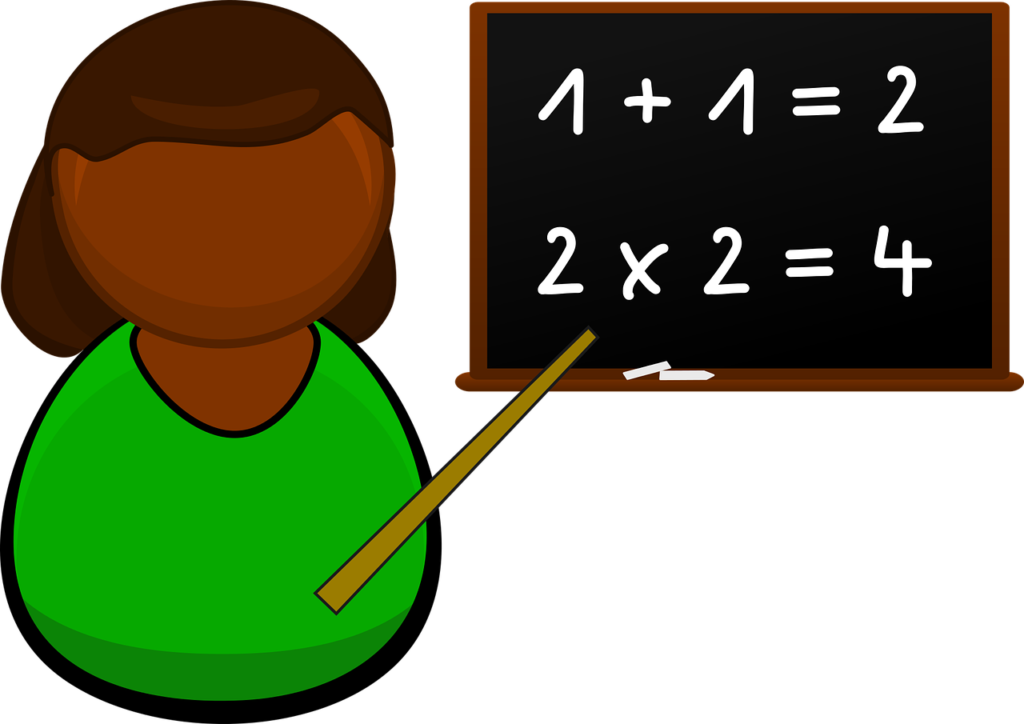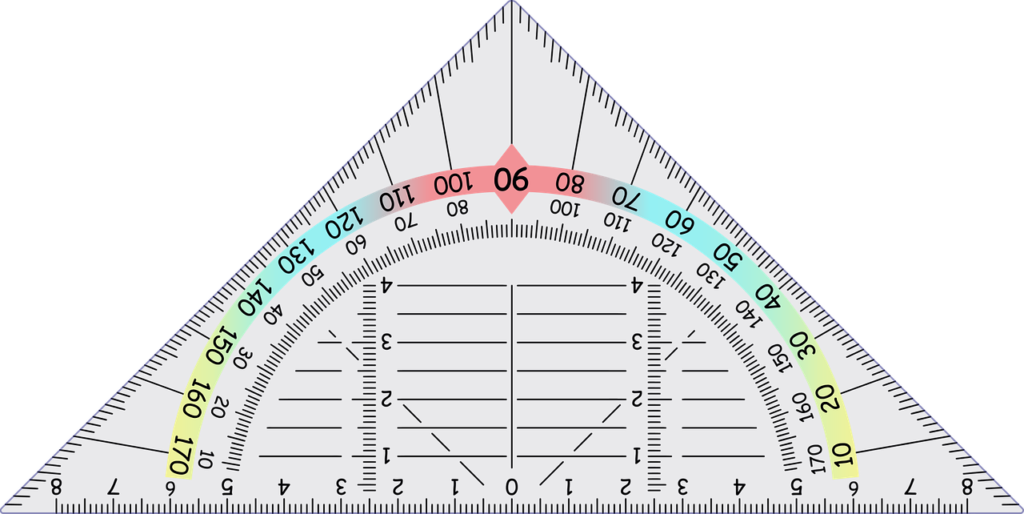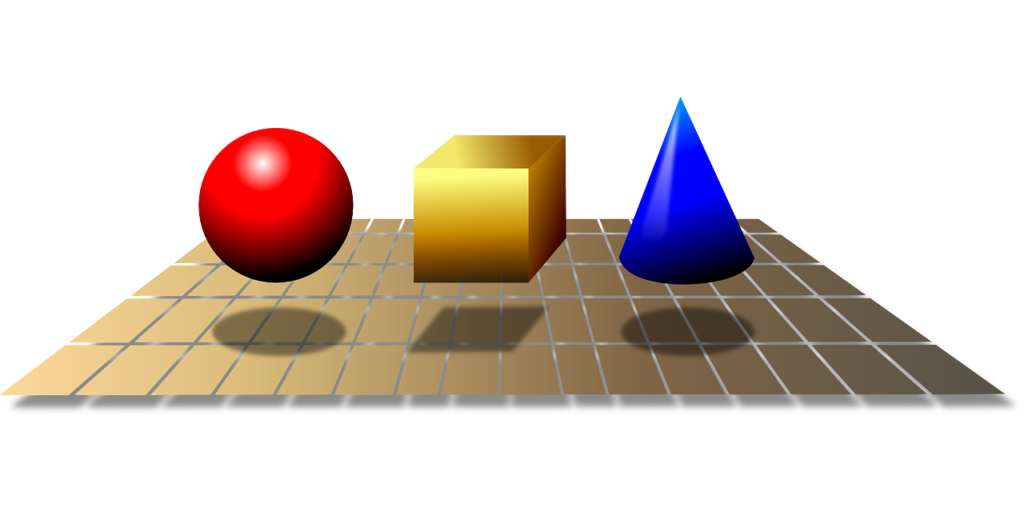
A math degree unlocks a world of opportunities in various industries. In today’s data-driven world, professionals with strong mathematical skills are highly sought after. Pursuing a math degree equips you with valuable problem-solving and analytical abilities that are in high demand across diverse fields such as finance, technology, and research.
Schools Offering Online Math Degrees

Math Degrees from Indiana University East
Online Bachelor of Science in Mathematics

Math Degrees from Liberty University
Associate of Science in STEM Mathematics

Math Degrees from SNHU
Bachelor of Arts (BA) in Mathematics
Types of Math Degrees
There is a wide range of math degrees to choose from, each with its unique focus and applications. Let’s explore some of the most popular types of math degrees:
Applied Mathematics focuses on using mathematical techniques and models to solve real-world problems. Students in this field learn how to apply mathematical principles to areas such as engineering, finance, and natural sciences, making them highly valuable professionals in various industries.
Numerical Analysis and Scientific Computing involve the development and analysis of numerical algorithms to solve mathematical problems. This field is particularly important in today’s data-driven world, as it helps in the efficient and accurate processing of large datasets and complex computations.
Optimization Theory deals with the study of mathematical techniques to find the best possible solutions to problems involving multiple constraints. It plays a crucial role in areas such as operations research, logistics, and management science, where optimal decision-making is a must.
Computer Science is closely related to mathematics, as it heavily relies on mathematical theories and algorithms. A math degree with a focus on computer science can open doors to careers in software development, data analysis, artificial intelligence, and more.
Pure Mathematics is the study of mathematical concepts and theories without considering their practical applications. Students pursuing a degree in pure mathematics delve into abstract topics such as number theory, topology, and geometry, which can lead to careers in academia and research.
Economics is another field that heavily relies on mathematical principles. A math degree with a focus on economics equips students with the analytical tools needed to understand complex economic systems and make informed decisions in areas such as finance, public policy, and business management.
Math degrees offer a diverse range of specialization options, catering to various interests and career aspirations. Choosing the right type of math degree will depend on your passions, goals, and the specific skills you wish to develop.

Online Math Degree Programs
In today’s digital age, online math degree programs have gained popularity, offering flexibility and accessibility to adult learners and non-traditional students. Let’s explore the advantages of pursuing an online math degree and some essential factors to consider when choosing an online program.
Advantages of Online Math Degree Programs
Online math degree programs offer numerous benefits, including:
- Flexibility: Online programs allow students to balance their studies with work, family, and other personal commitments. They can access course materials and complete assignments at their own pace, making it easier to manage their time effectively.
- Accessibility: Online degree programs remove geographical barriers, enabling students to enroll in institutions and access resources that may not be available in their local area.
- Affordability: Online programs often have lower tuition fees and fewer additional costs, such as transportation and housing, making higher education more affordable for many students.
- Networking opportunities: Online programs connect students with peers and professionals from diverse backgrounds and locations, expanding their professional networks and opening up new career opportunities.
Factors to Consider when Choosing an Online Math Degree Program
When selecting an online math degree program, consider the following factors:
- Accreditation: Ensure the program is accredited by a recognized accrediting agency, as this indicates the quality and rigor of the program and its curriculum.
- Faculty: Research the qualifications and expertise of the faculty members, as they play a crucial role in shaping your learning experience and professional growth.
- Curriculum: Review the program’s curriculum to ensure it covers the topics and areas of interest relevant to your career goals.
- Support services: Check the availability of academic, career, and technical support services, as they can significantly impact your success in the program.
Math Degree Curriculum
A comprehensive math degree curriculum is designed to equip students with a solid foundation in mathematical concepts, problem-solving skills, and analytical abilities. Let’s explore the core courses, elective courses, and practical experiences typically offered in a math degree program.
Core Courses in Math Programs
Core courses form the backbone of a math degree program, providing students with a strong understanding of essential mathematical concepts. Common core courses include:
- Calculus: An introduction to the fundamental concepts of calculus, including limits, differentiation, integration, and applications in various fields.
- Linear algebra and differential equations: A study of linear algebra concepts such as matrices, vector spaces, and linear transformations, as well as the theory and applications of ordinary and partial differential equations.
- Abstract mathematics and proofs: An exploration of abstract mathematical structures, such as groups, rings, and fields, and the development of mathematical proof techniques.
- Higher-level abstract courses: Advanced study of topics such as number theory, topology, and complex analysis, which delve deeper into the world of pure mathematics.
Elective Courses in Math Programs
Elective courses allow students to tailor their math degree program to their specific interests and career goals. Examples of elective courses may include:
- Probability and statistics: A study of probability theory, statistical inference, and applications in data analysis and decision-making.
- Discrete mathematics: An examination of discrete structures and algorithms, with applications in computer science, cryptography, and combinatorics.
- Mathematical modeling: The development and analysis of mathematical models to represent real-world phenomena and solve practical problems in various fields.
- Numerical methods: A study of numerical techniques for solving mathematical problems, with a focus on computational efficiency and accuracy.
Practical Experience and Research Opportunities in Math Programs
In addition to coursework, math degree programs often provide students with opportunities for practical experience and research. These opportunities may include:
- Internships: Gaining hands-on experience in industry settings, such as finance, technology, or engineering, to apply mathematical skills and knowledge in real-world scenarios.
- Research projects: Collaborating with faculty members or peers on research projects, exploring novel mathematical concepts or applications.
- Capstone projects: Undertaking a culminating project or thesis that demonstrates a deep understanding of mathematical concepts and the ability to apply them in a meaningful way.
A well-rounded math degree curriculum covers core and elective courses, as well as practical experiences and research opportunities, to ensure students develop the necessary skills and knowledge for success in their chosen career paths.

What to Expect when Majoring in Math
As a math major, you can expect a well-rounded and rigorous education that will equip you with both theoretical and practical knowledge. This section discusses the key aspects you can expect when majoring in math, including knowledge development, skill-building, and collaboration opportunities.
Theoretical and Practical Knowledge Development
Math degree programs are designed to provide students with a strong foundation in mathematical concepts and techniques. You will learn about various branches of mathematics, such as calculus, linear algebra, and discrete mathematics, as well as their applications in real-world scenarios. This combination of theoretical and practical knowledge will enable you to understand complex mathematical ideas and apply them effectively to solve problems in various fields.
Problem-Solving and Critical Thinking Skills
One of the key skills you will develop as a math major is the ability to think critically and solve complex problems. You will learn how to break down problems into smaller, more manageable pieces, analyze them using mathematical techniques, and develop logical solutions. These problem-solving and critical thinking skills are highly sought after by employers in various industries, as they can be applied to a wide range of tasks and challenges.
Opportunities for Collaboration and Networking
Math degree programs often provide ample opportunities for students to collaborate with their peers, faculty members, and professionals in the field. This can include group projects, research opportunities, and internships, which allow you to work on real-world problems and gain valuable experience. Additionally, networking events, seminars, and conferences can help you connect with fellow students and professionals, expanding your professional network and opening up new career opportunities.
Majoring in math will provide you with a robust education that combines theoretical knowledge, practical application, and essential skills. Furthermore, you will have the opportunity to collaborate with others and expand your professional network, setting the stage for a successful and fulfilling career in mathematics or related fields.

Finding the Right School for a Math Degree
Selecting the right school for your math degree is crucial to ensure that you receive a quality education and develop the skills needed for a successful career. To find the right school for your math degree, consider the following factors:
Assessing the reputation of the mathematics department
One critical aspect to consider is the reputation of the mathematics department at the school. A reputable department will have a strong faculty with expertise in various areas of mathematics, as well as a history of research and academic excellence. Research the department’s achievements, publications, and faculty credentials to evaluate its reputation in the field.
Evaluating the school culture and resources for collaboration
The school culture and resources play a significant role in fostering a collaborative and supportive learning environment. Look for a school that encourages collaboration among students and faculty, as well as offers resources like study groups, tutoring services, and networking events. This will help you develop the necessary skills, build relationships, and gain valuable experience throughout your degree program.
Ensuring a variety of courses in your area(s) of interest
Finally, make sure the school offers a diverse range of courses that align with your interests and career goals. Review the course catalog and curriculum to see if the school provides a variety of options in areas such as applied mathematics, computer science, or pure mathematics. A well-rounded and diverse curriculum will help you develop a broad understanding of mathematical concepts and applications, ultimately preparing you for a successful career in mathematics or related fields.
Finding the right school for a math degree involves assessing the reputation of the mathematics department, evaluating the school culture and resources for collaboration, and ensuring a variety of courses in your area(s) of interest. By carefully considering these factors, you can make an informed decision about your education and ultimately set yourself up for success in your chosen career path.
Increasing Admission Chances for Prospective Math Majors
To increase your chances of admission into a math degree program, it is essential to demonstrate your passion and commitment to the subject. There are several strategies you can employ to showcase your dedication to mathematics and enhance your prospects for admission:
Establishing Intellectual Curiosity
Showcasing your intellectual curiosity is crucial for success in a math degree program. Engage in self-directed learning by exploring various mathematical topics and concepts independently. Attend workshops, seminars, and webinars on mathematics to demonstrate your eagerness to learn and stay updated in the field. By actively pursuing knowledge outside of the classroom, you can demonstrate your passion for mathematics and your ability to excel in a math degree program.
Pursuing Research Opportunities in Mathematics
Participating in research opportunities is a valuable way to demonstrate your commitment to mathematics and your potential as a math major. Seek out research projects with faculty members or explore independent research opportunities in areas of interest. By engaging in research, you can not only develop essential skills for a successful career in mathematics but also showcase your dedication to the field and your ability to contribute to academic research.
Participating in Math-Related Extracurricular Activities
Engaging in math-related extracurricular activities can further demonstrate your passion for mathematics and enhance your admission chances. Join a math club, compete in math competitions, or volunteer as a math tutor to showcase your commitment to the subject. These activities not only help you develop essential skills for a successful math major but also demonstrate your enthusiasm for mathematics and your ability to excel in a challenging academic environment.
Increasing your admission chances as a prospective math major involves showcasing your intellectual curiosity, pursuing research opportunities, and participating in math-related extracurricular activities. By following these strategies, you can demonstrate your dedication to mathematics and significantly improve your chances of being accepted into a math degree program.

Jobs for Math Majors
Math majors possess a strong foundation in analytical and problem-solving skills, which can be applied across various industries. This section will explore the top career opportunities for math degree holders, high-demand math professions, and salary expectations for math majors.
Top Career Opportunities for Math Degree Holders
Graduates with a math degree can explore a diverse range of career options, including:
- Actuary: Actuaries use their mathematical expertise to assess and manage risks for insurance companies, financial institutions, and other organizations.
- Data Scientist: Data scientists analyze large datasets to extract valuable insights and drive informed decision-making across industries such as technology, finance, and healthcare.
- Operations Research Analyst: These professionals use mathematical models and analytical techniques to help organizations optimize their operations and make better decisions.
- Mathematics Teacher or Professor: Math majors can share their passion for the subject by teaching at the K-12 or college level, shaping the minds of future generations.
- Statistician: Statisticians use mathematical methods to collect, analyze, and interpret data, helping organizations make data-driven decisions and predictions.
High-Demand Math Professions
Some math professions are particularly in high demand due to the growing need for analytical and problem-solving skills in various industries. These high-demand professions include:
- Data Analyst: Data analysts process and interpret large volumes of data to support decision-making and drive business strategies.
- Financial Analyst: Financial analysts evaluate investment opportunities, assess financial risks, and provide recommendations to businesses and individuals.
- Market Research Analyst: These professionals study market conditions, analyze consumer behavior, and help organizations develop effective marketing strategies.
Salary Expectations for Math Majors
Salaries for math majors can vary depending on factors such as the chosen profession, industry, and level of experience. However, math degree holders often enjoy competitive salaries due to the high demand for their skills and expertise. According to the U.S. Bureau of Labor Statistics, the median annual wage for mathematicians and statisticians was $99,960 in 2022.
Math majors have a wide range of lucrative career opportunities across various industries. The strong analytical and problem-solving skills developed during their math degree program make them valuable assets to organizations in today’s data-driven world.

Frequently Asked Questions
In this section, we will address some common questions about majoring in math, career prospects, and the challenges faced by math students.
Is majoring in math hard?
Majoring in math can be challenging, as it involves rigorous coursework, abstract concepts, and problem-solving tasks. However, the difficulty of a math degree varies depending on individual strengths, interests, and dedication to the subject. With persistence, hard work, and a passion for mathematics, students can successfully complete a math degree and excel in their chosen career paths.
What are the top 3 math careers?
Some of the top careers for math majors include:
- Data Scientist: Data scientists analyze large datasets to extract valuable insights and drive informed decision-making across industries such as technology, finance, and healthcare.
- Actuary: Actuaries use their mathematical expertise to assess and manage risks for insurance companies, financial institutions, and other organizations.
- Operations Research Analyst: These professionals use mathematical models and analytical techniques to help organizations optimize their operations and make better decisions.
What is the hardest math class for a math major?
The hardest math class for a math major can vary depending on individual preferences and strengths. However, some of the most challenging courses often involve abstract mathematics and proofs, such as topology, real analysis, and abstract algebra. These courses require a deep understanding of mathematical concepts and the ability to work with complex structures and ideas.
Can I learn math at 40?
Yes, it is never too late to learn math. Adult learners and non-traditional students can pursue math education through various means, such as online courses, community college classes, or even self-directed learning. With dedication, persistence, and the right resources, individuals can learn math at any age and unlock new career opportunities.
Do math majors make good money?
Math majors often enjoy competitive salaries due to the high demand for their skills and expertise. According to the U.S. Bureau of Labor Statistics, the median annual wage for mathematicians and statisticians was $99,960 in 2022, while operations research analysts earned a median annual wage of $85,720. The exact salary will depend on factors such as the chosen profession, industry, and level of experience.
Unlock Your Math Potential
We’ve explored the importance and benefits of pursuing a math degree, including the diverse range of math degrees available, the comprehensive curriculum, and the various career opportunities for math majors. With a strong foundation in mathematics, you can unlock countless opportunities in today’s data-driven world.
